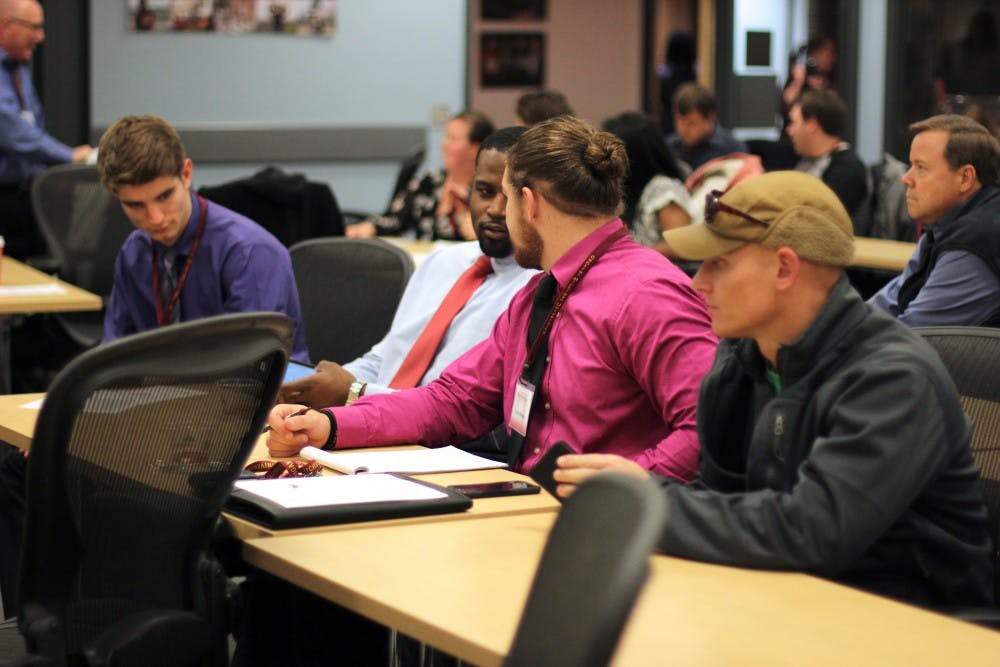Make-a-Pitch competition awards student entrepreneur teams

Central Michigan students discuss their pitches with each other during the New Venture Competition on Dec. 2 in Grawn Hall.
Aimeee Kalczuk and Vijaya Gayatri accidentally created their own business when, on the first day of the New Venture Competition workshops, they pitched their idea to who they assumed would be business students.
Once they found out what the event was, the Walker sophomore and international graduate student decided to keep pursuing their idea of a coat for stroke patients with paralysis on one side of their body.
Months later, they were standing in front of 20 teams of student entrepreneurs and judges at the Make-a-Pitch competition in hopes of winning capital for their Style for a Lifetime business.
“I was excited to present and get feedback because I don't know much about business,” Kulczak said. “I was nervous until I got up in front of the judges. Then you remember exactly what you have to say.”
The Make-a-Pitch competition had student entrepreneurs orally present their brainstormed products to receive feedback on their inventions by six judges Wednesday night. The event served as practice for the New Venture Competition, which awarded over $75,000 in start-up capital and entrepreneurship services to winning teams last year.
The final round first place winner, High Hopes Hammock Co., consisting of Connor Moynihan, Christian Cullinan and Georgiana Klem, was a awarded $500 gift card for the Central Michigan University Bookstore. Second place winner, Barbera Tech, created by James Barbera, was awarded $100 for the CMU Bookstore. Third place winner, Electronic Care steam Company, consisting of Nicholas P. Cozzi and Craig J. Thomas, was awarded a $50 gift card.
“I am so proud of my team. We were so fortunate to even make it in the top six,” said Klem, a CMU senior. ”As an entrepreneur, you never know if your idea is even valid or worth anything, but seeing others get hyped about it made it feel real and like it cohle have longevity.”
The teams were sent into two separate rooms, with approximately ten teams per room. Each room advanced three teams to the final round.
Students were allowed two minutes to sell their product during the pitch session. After the two minutes, the students were signaled to stop, and received brief, minute-long feedback from the judges.
Each judge, called “sharks," had backgrounds in entrepreneurship and business in Michigan. Two networking breaks were granted after each round of pitches.
“Students have to get good at communicating their idea clearly, precisely and briefly,” said entrepreneur-in-residence Bruce Marble. “That's easy to say, but hard to do, so it's a great experience.”
Marble said the Make-a-Pitch competition allows students the chance to see what the New Venture Competition experience and workload will be like for the teams. He said about 25 percent of teams drop out after the Make-a-Pitch competition.
“Some decide they don't want to do a continued investment or their idea is not quite as good, so they stop,” Marble said. “Others become even more motivated with their idea.”
The goal of the New Venture Competition is to help students launch start-up businesses in Michigan. The competition is coordinated by the College of Business Administration and the Isabella Bank Institute for Entrepreneurship.



